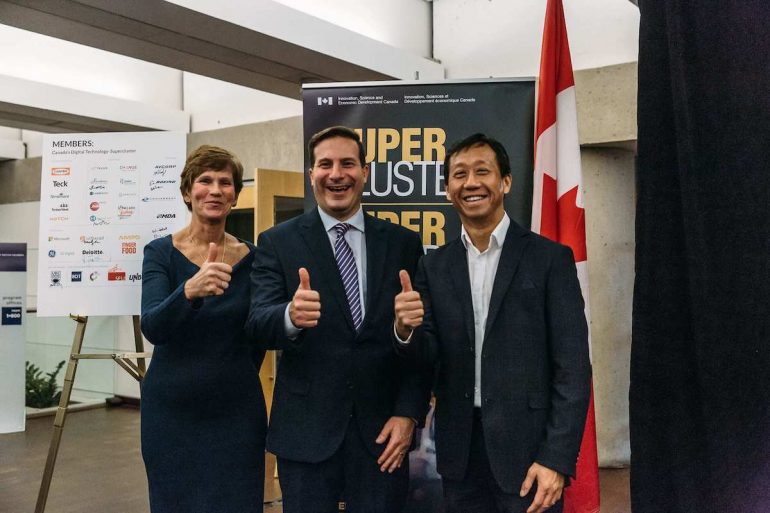On Thursday the Government of Canada and the European Union signed an administrative arrangement creating “transatlantic cluster collaboration,” deepening ties between Canada’s five Superclusters and cluster organizations across the EU.
“The EU and Canada are natural partners for clusters. Companies from both sides of the Atlantic can pool their knowledge.”
The document builds on The Comprehensive Economic and Trade Agreement (CETA) the free-trade agreement between Canada, the European Union, and its member states. The new agreement will see Canada’s five Superclusters working more closely with their overseas counterparts, giving Canada’s five Innovation Superclusters more opportunities to form strategic business partnerships and linkages with 25 cluster organizations and firms in the European Union.
“Canada’s five Superclusters are set to become major engines of growth, building on Canada’s image as a global innovation centre and world leader in research and development,” said Navdeep Bains, Minister of Innovation, Science and Economic Development. “The ultimate goal is to create globally competitive Superclusters and that involves looking beyond our borders.”
The agreement will connect the Canadian Superclusters with clusters in the EU that take part in the European Cluster Collaboration Platform, a networking community of more than 1,000 clusters across Europe.
“The EU and Canada are natural partners for clusters. Companies from both sides of the Atlantic can pool their knowledge and innovation potential to build a strong industrial foundation,” said Elżbieta Bieńkowska, European Commissioner responsible for internal market, industry, entrepreneurship and SMEs. “We have an interest to intensify our cooperation in a more strategic and sustainable manner, not the least to fully use the opportunities offered by CETA.”
Announced in 2017, the government’s supercluster strategy allotted $950 million to consortia made up of non-profits, the private sector, and post-secondary institutions, with government contributions getting matched by the private sector. Winning superclusters were announced in February 2018, and funding was distributed to the five separate organizations in the fall.
Since then the Superclusters have been mum about the projects that they plan to work on and develop, other than BC-based Digital Technology Supercluster, which announced its detailed intentions in March. Earlier this week Quebec-based Scale-ai put out a call for potential projects. Ontario-based Next Generation Manufacturing and Prairies-based Protein Industries Supercluster have also put out initial calls for projects.
With its Supercluster initiative, the government has stated that it hopes to create 50,000 middle-class jobs and grow Canada’s economy by $50 billion over the next 10 years.
Thursday’s signing was part of a multi-day EU-Canada event focused on fostering cross-cluster collaboration at the benefit of the SME members. The Toronto event was a follow up from the High-Level Cluster Event that took place in Germany in April, which initiated the EU, Canada cluster initiative. The European Cluster Collaboration Platform runs a number of what it calls “matchmaking” events helping its members learn more from their international counterparts spanning Canada, Singapore, Thailand, Taiwan, China, and more.


